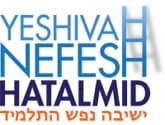Rav Chaim Shmueletz points out this week seemingly contradictory Midrashim. On the one hand, in Zechus of Avrahams chessed Klal Yisroel were Zocheh to protection and support in the Midbar. Avraham offer the Malachim food, so we got the Manna. He stood and served them, so we were protected by the Ananei Hakavod. He offered them water, so we were zocheh to the Be’er. However the Midrash later says the Manna was in zechus of Moshe, The Ananei HaKavod for Aharon, and the Be’er for Miriam.
Likewise, we learn Avrahams descendants are Zocheh to the mitzvah of tzitzis because he refused from the King of Sedom “even a shoelace”, and yet we also learn that the descendants of Shem were Zocheh to tzitzis because he covered Noach.
Rav Chaim explains that all the Midrashim are true, comparing it to the growth of a tree. Its true, all the potential, power and growth of a tree is contained in a small seed. Yet the Seed also needs the right conditions. It need proper soil, water, and sunlight. Without all the right components, the tree won’t grow or won’t last. He continues to explain that the same could be said about “bad seeds”, using the example of Acher (Elisha Ben Avuya), who the Gemara explains in different places different reasons why he went off the derech. There is one story though about his father, who at the Bris of Acher was so impressed by the miracles he saw the Rabanan capable of he decided to dedicate his sons chinuch solely towards Torah. This small seed of “Shelo Lishma” would later blossom in Acher’s adult life when he faced challenges, seeing the tongue of a Tzadik dragged though the streets, listening to non-Jewish Music and reading greek works, hearing that he could never succeed in doing teshuva. In some way, all these episodes quoted in the Gemara contributed to fertilizing the seed planted by Acher’s father.
On the on hand, this sounds frightening for parents and mechanchim. Yet, there is a flip side, the equal potential for posi-tive growth and fulfillment. We carry within us many seeds, good and bad, that we pass on to our children and students (who are like our children). We also (through our actions and example) provide the soil, water and sunlight. We have to be careful which seeds we choose to cultivate and which we want to lay dormant until there can be an ultimate Tikun. As the Gemara says, every generation we don’t rebuild the Beis HaMikdash, we destroy it again. Those seed are there, but so are the seeds of the Avos, their Mesiras Nefesh, their incredible Maasim, their closeness to Hashem, their Tefilos. I believe this is what we call “Zechus Avos” or “Maaseh Avos Siman L’Banim. Not everything is in our control of course. Friends, society, the media, every influence in our childrens lives vie to germinate seeds within them, we can only do our best. But only if we do our best then can we hope for the best for our children.
Usually in these Divrei Torah I discuss how we interact without children and students. Whats striking about these Midrashim is that they imply what effects children and descendants is not limited to interactions between parent/mechanech and child/student. All these Midrashim give examples of Maasim done NOT in front of the child/student, sometimes done completely privately. Everything we do matters. Even when we are at work/shul/beis hamidrash, traveling, whatever, we are raising our children, even if we do things they never find out about. By working on ourselves we are also mechanech our children. The tent of Sarah (likewise) had blessing in the bread (Manna) and also had ananei hakavod. When she died, Rivkah, who never met Sarah, brought them back through her deeds and personality, by becoming the spiritual off-spring of Sara. She accessed the same seeds within and followed Sarah personal example. Likewise, every Jewish mother has the seeds within her to provide the same atmosphere in her home. Every Jewish father has the seeds to pass down the mitzvos and mesorah. We dont always have to know every perfect response to the difficult situations that arise when raising a child or teaching. We can strive to be the best individuals we can be in our lives, which gives light and sustenance to our children.
Shabbat Shalom,
Rabbi Ari Deutscher
Menahel

Leave A Comment